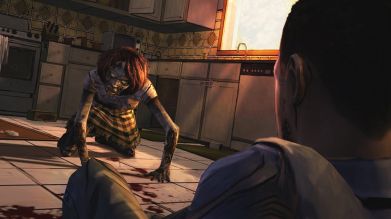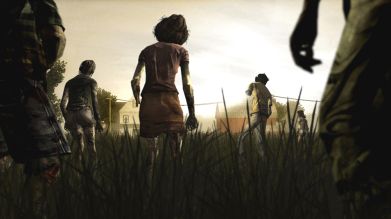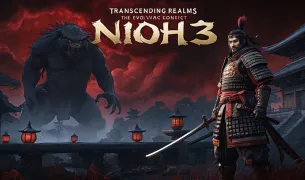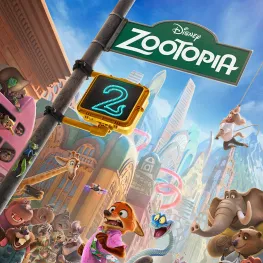Embarking on an episodic journey throughout 2012, The Walking Dead: The Game set a new standard for narrative-driven gaming. This alluring spectacle came from Telltale Games, renowned for their innovative storytelling approach, and introduced players to an immersive world ravished by a zombie outbreak. Players inhabit the role of Lee Everett, a convicted criminal, who finds renewed purpose in the havoc of the apocalypse: surviving the relentless hordes of 'walkers' as he vows to safeguard a young girl named Clementine.
Choice-Driven Journey
Unlike its contemporaries, The Walking Dead deviates from orthodox adventure gaming. The emphasis isn’t on mechanic manipulation or puzzle-solving but on a profoundly personalized journey crafted by your reactions, decisions, and dialogue. The distinctive "choose your own adventure" style maintains excitement for players as they make decisions and proceed through the five intense episodes.
As players find themselves making decisions and conversing with other survivors, the game adapts to every choice, driving the narrative direction. The ripple effect of your decisions permeates through the entire adventure, affecting relationships and shifting group dynamics. While the narrative ultimately leads to a predetermined endpoint, the path you take is wholly determined by the decisions you make.
In-Depth Game Mechanics: A New Approach to Control
The game mechanics of The Walking Dead feature an innovative control system. Moving Lee involves manipulating an on-screen reticle alongside character direction, offering an exciting way to interact with objects and characters. While this can lead to frantic moments during combat situations with the undead, it adds an adrenaline-filled rush that enhances the survival experience.
Challenges: In Continuity
Like any ambitious endeavor, The Walking Dead: The Game isn’t free from flaws. Periodic technical difficulties like freezing scenes, sudden slowing of gameplay action, and disappearing save files can affect continuity. Despite these hitches, the game’s gripping narrative outweighs these inconveniences.
The Mobile Experience
The mobile version stays faithful to the original, incorporating most of the acclaimed dialogue, striking visuals, and intense scenarios. If anything, tactile gestures for key situations—swiping, tapping, rapid touch sequences—add a dimension of interactivity that is rewarding. Nevertheless, it also features a suite of technical hiccups, including flickering textures, erratic animations, crash bugs, and framerate issues.
Filling in Your Sketch
The Walking Dead: The Game stands out for its emphasis on player agency. The choices you make are more than just branching paths in the narrative - they color your experience and shape Lee's journey, making the adventure uniquely personalized. With every relationship you foster, the emotion you invest, and the decision you make, the game crafts an attachment that’s both thrilling and endearing. Despite its measurable challenges, The Walking Dead: The Game continues to offer a beautifully chaotic canvas of survival, awaiting your personalized touch. It’s a journey worth embarking on, even for the faint-hearted.
Nonetheless, even games as praised as The Walking Dead aren't without their flaws. On occasion, players might encounter technical glitches such as freezing scenes, unexpected drops in-game speed, and erratically disappearing save files, which can somewhat detract from the overall immersion.
Reflection from the Gaming Perspectives
Despite these shortcomings, gamers generally label The Walking Dead: The Game as a touchstone in the gaming community. Players highlight its compelling narrative, the weight of its choices, and the emotionally driven character relations as the game's major strengths, making it a highly personal journey through a world gone mad.
In essence, The Walking Dead: The Game deftly weaves the rawness of survival with the subtleties of human emotion against the backdrop of a disintegrating society. It affords players the reins to their narrative, further pushing the boundaries of player agency. Despite its technical shortcomings, the game's captivating narrative experience overshadows these faults, establishing it as an unforgettable milestone in the annals of game history.
Pros
- Deeply immersive narrative shaped by player decisions
- Strong character development creates emotional investment
- Unique, comic book-style graphics that enhance the atmosphere
- Point-and-click gameplay accessible to players of all skill levels
- High replay value with different story outcomes based on choices.
Cons
- Limited traditional action gameplay may not satisfy all players
- Some may find the episodic structure paced slower than preferred.



















